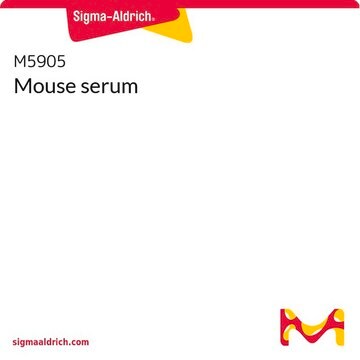Recommended Products
product name
Trypsin inhibitor from chicken egg white, Type II-O, Partially purified ovomucoid, containing ovoinhibitor
biological source
chicken egg white
type
Type II-O
form
powder
mol wt
14 kDa
solubility
water: soluble 10 g/L
storage temp.
2-8°C
Looking for similar products? Visit Product Comparison Guide
General description
Application
- to produce denatured, oxidized and deglycosylated ovomucoid and used to stimulate patient derived cell cultures for mapping T cell epitopes
- to treat nuclei for flow cytometric analysis
- in Holtfreter′s solution, used for the dissociation of planarians into cells
Unit Definition
Analysis Note
Other Notes
Signal Word
Danger
Hazard Statements
Precautionary Statements
Hazard Classifications
Resp. Sens. 1 - Skin Sens. 1
Storage Class Code
11 - Combustible Solids
WGK
WGK 3
Flash Point(F)
Not applicable
Flash Point(C)
Not applicable
Personal Protective Equipment
Certificates of Analysis (COA)
Search for Certificates of Analysis (COA) by entering the products Lot/Batch Number. Lot and Batch Numbers can be found on a product’s label following the words ‘Lot’ or ‘Batch’.
Already Own This Product?
Find documentation for the products that you have recently purchased in the Document Library.
Customers Also Viewed
Chromatograms
application for HPLCOur team of scientists has experience in all areas of research including Life Science, Material Science, Chemical Synthesis, Chromatography, Analytical and many others.
Contact Technical Service









